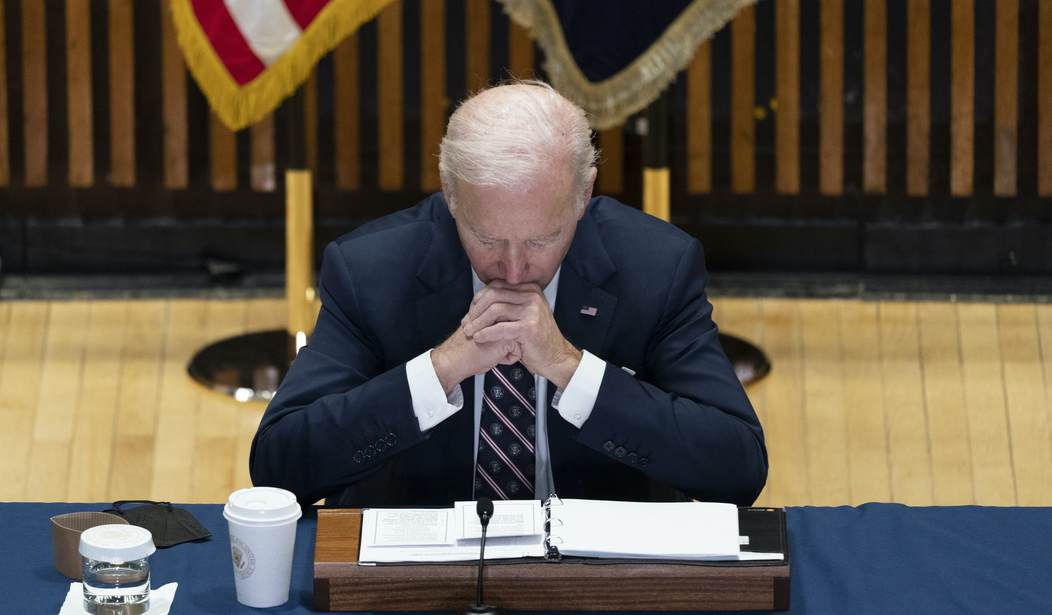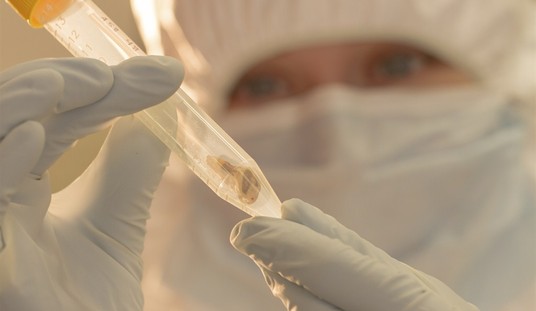Alternate take: Here’s how we underestimated China’s intentions. The New York Times offers a lengthy opportunity for its sources to spin the Biden administration as strategic and pre-emptive on Ukraine while all public evidence argues to the contrary, including yesterday’s incremental increase of sanctions after Russia’s all-out invasion.
According to this series of events, Joe Biden’s team tried for three months to get Vladimir Putin’s newest bestest buddies in Beijing to convince him to back away from Ukraine. Their response to Biden’s team? The US had its intelligence wrong:
Over three months, senior Biden administration officials held half a dozen urgent meetings with top Chinese officials in which the Americans presented intelligence showing Russia’s troop buildup around Ukraine and beseeched the Chinese to tell Russia not to invade, according to U.S. officials.
Each time, the Chinese officials, including the foreign minister and the ambassador to the United States, rebuffed the Americans, saying they did not think an invasion was in the works.
China’s response to Russia was even more interesting:
After one diplomatic exchange in December, U.S. officials got intelligence showing Beijing had shared the information with Moscow, telling the Russians that the United States was trying to sow discord — and that China would not try to impede Russian plans and actions, the officials said.
The previously unreported talks between American and Chinese officials show how the Biden administration tried to use intelligence findings and diplomacy to persuade a superpower it views as a growing adversary to stop the invasion of Ukraine, and how that nation, led by President Xi Jinping, persistently sided with Russia even as the evidence of Moscow’s plans for a military offensive grew over the winter.
If that’s the preferred narrative of “US officials,” that makes them look entirely pathetic. Did the US and Western response to Russian aggression really come down to “let’s get China to bail us out”? Because if that’s the ongoing strategy in dealing with European security, we might as well have everyone sign up for China’s Belt and Road Initiative.
If we had this much confidence in our intelligence, why did the US and EU not initiate deeper sanctions up front? We didn’t necessarily need to go for a full SWIFT lockout in December, but sanctions on oil and gas exports might have made a dent in Vladimir Putin’s capital reserves when it still mattered. Germany didn’t even halt the certification process for Nord Stream 2 until the invasion launched, which either is an indication of their confidence in that intelligence stream or their lack of commitment to European security until an actual invasion of Europe takes place. The Biden administration wasted months trying to get China to act as our ally rather than act on our own to seriously confront Putin over his planned invasion.
And even now, even while Russian planes and artillery bomb population centers in Ukraine, the best that the Western consensus can produce as a rebuke is an incremental set of sanctions that won’t impede Russia’s main export business at all. Small wonder China decided that it’s better to work with Putin. Why bother aligning with the West when they’re barely acting in their own defense as it is?
China does seem a bit nonplussed at Russia’s all-out invasion, however. They apparently expected something much less kinetic, and now want Putin to enter into “balanced negotiations” with Ukraine to dial it down a bit:
The Chinese president has urged Vladimir Putin to resolve the conflict with Ukraine “through negotiations” as the Russian army doubled down on its invasion.
Xi Jinping told his Russian counterpart to use “balanced negotiations” in a phone call on Friday, the first publicised meeting between the two leaders since Putin’s visit to Beijing during the Winter Olympics. …
China’s refusal to acknowledge the all-out military assault and the attack on cities such as Kyiv, much less join in international condemnation of it, reflects the strength of Xi’s relationship with Putin, according to experts.
Putin responded that he’s open to the idea, but on his terms and on friendly turf only:
Vladimir Putin is prepared to send a delegation to Minsk for negotiations on Ukraine’s neutrality as Russia continues its full-scale invasion of Ukraine, the Kremlin said on Friday.
Dmitry Peskov, the Russian president’s spokesman, said that Russia was ready to send a group from its defence and foreign ministries alongside Kremlin officials for talks with Ukraine in the Belarusian capital.
Russia’s conditions, however, effectively amount to Ukraine’s surrender. Peskov said that Russia considered “demilitarisation and de-Nazification” of Ukraine, Putin’s ostensible reason for the invasion, to be an “inseparable component of neutral status”.
That’s not a promising development. That may be why the EU has decided to escalate sanctions a little more today, according to Bloomberg and the Financial Times. They plan to seize the assets of Putin and Russian foreign minister Sergei Lavrov as a penalty for the invasion:
European Union diplomats approved a plan to sanction Russian President Vladimir Putin and Foreign Minister Sergei Lavrov over the invasion of Ukraine, a move that would freeze their overseas assets, according to two senior officials.
The asset freeze, which comes in addition to a broader package of sanctions that the EU approved early Friday, does not affect the ability of Putin or Lavrov to travel, the officials said, as the EU seeks to keep diplomatic avenues open.
The details of Putin’s wealth are something of a mystery. Officially, he owns hardly any assets. His annual income is about 10 million rubles ($120,850), and he owns three cars and an apartment, according to his latest financial disclosure.
Putin’s wealth is rumored to be among the largest in the world, but it’s almost certainly not located in EU institutions or in the US either. He might hold some nominal wealth in such places, but he’s far more likely to have it stashed in South America and Asia — perhaps especially in China. The only way to disrupt Putin’s access to wealth is to cut Russia out of the SWIFT program, and Putin already knows that won’t happen after Biden’s presser yesterday. Biden declared that he’d wait “a month” or so to see what impact these incremental sanctions will have, by which time Ukraine will likely have been completely invested by Russian forces. (The long and bloody occupation that would follow this will have only just begun, of course.)
If this is the best that the White House can do for spin, it’s an admission that their influence around the world — and by extension, American influence — has hit its nadir.







